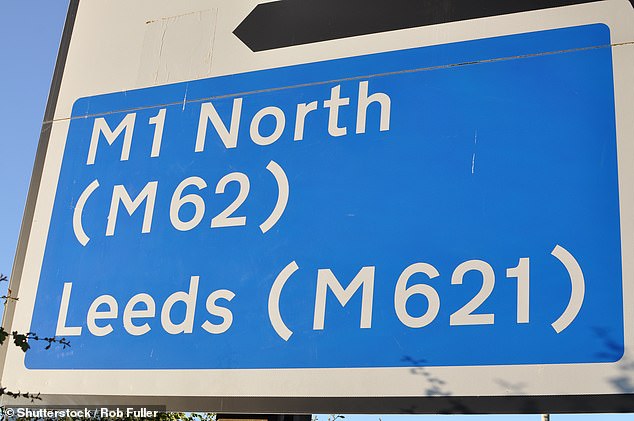The North-South divide is, as readers of Mrs Gaskell well know, nothing new.
The UK is one of the most geographically unequal countries in the developed world on some measures. Attempts to iron out regional disparities have been going on since the 1930s.
The Thatcher government was accused of dismantling heavy industry without providing sufficient support for the communities that relied on steel and coal. By contrast, levelling up and wooing Red Wall voters was a cornerstone of the Conservatives’ 2019 successful election campaign.
In February 2022, the Tories produced a white paper setting out 12 steps for improving performance and reducing inequality. All good stuff, apart from the fact nothing much has happened.
If Rachel Reeves is to get the growth she needs after hammering the nation with tax rises, this has to change. As MP for Leeds West and Pudsey, she should be well aware of how unevenly prosperity is spread and of the North’s wasted potential. London is on a separate plane to the rest of the country. It benefits from a concentration of resources and from being the focus of decision-making.

Change of direction: As MP for Leeds West and Pudsey, Rachel Reeves should be well aware of how unevenly prosperity is spread and of the North’s wasted potential
Getting on your bike, as recommended by Norman Tebbit, is not the answer: property prices are prohibitive for many.
In Germany, France and other developed countries, this phenomenon is much less pronounced: in the US, Austin in Texas is the fastest growing conurbation.
Sir Nigel Wilson, chairman of Canary Wharf group and a north-easterner, points out that if Britain’s secondary metropolitan areas such as Manchester, Birmingham and Glasgow had grown at the same rate as London in recent decades, then the UK economy would be £120billion richer.
People in the regions often feel remote from the City of London and feel it does nothing for them.
The credit crisis provoked distrust towards traders and bankers that still lingers. Mass bank branch closures – the most visible manifestation for most people of the financial services industry – has not helped, as it has removed another point of direct connection.
Yet the City, nowadays a metaphorical construct rather than a physical location, is key to regenerating the regions.
An executive at the UK arm of French bank Societe Generale told me proudly last week of its support for the Net Zero Teesside Power and Northern Endurance Partnership to create the UK’s first decarbonised industrial cluster. That is just one example. There is plenty of capital available to fund growth throughout the UK. Some £6trillion is stashed in pension funds and various other forms of savings scheme.
The Chancellor’s plan to create a handful of mega funds out of more than 80 existing local authority pension schemes sitting on £360billion of assets is a good one, provided she can actually pull it off.
Larger funds will be better able to invest in the infrastructure projects the country needs and in other higher risk, but potentially higher reward areas such as tech start-ups. It is also an opportunity to engage savers with their pensions.
If people knew some of their savings were being channelled into, say, a project to improve the local rail service or to back start-ups creating jobs in their area, it might encourage them to pay in more and create a virtuous circle.
Pension providers could tell savers much more about where their money is going and generate a sense of excitement about projects around the country.
Instead, their communications are incomprehensible and tedious. They must try harder.
DIY INVESTING PLATFORMS

AJ Bell

AJ Bell
Easy investing and ready-made portfolios

Hargreaves Lansdown

Hargreaves Lansdown
Free fund dealing and investment ideas

interactive investor

interactive investor
Flat-fee investing from £4.99 per month

Saxo

Saxo
Get £200 back in trading fees
Trading 212
Trading 212
Free dealing and no account fee
Affiliate links: If you take out a product This is Money may earn a commission. These deals are chosen by our editorial team, as we think they are worth highlighting. This does not affect our editorial independence.
This article was originally published by a www.dailymail.co.uk . Read the Original article here. .


